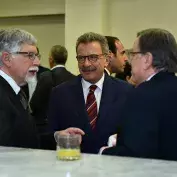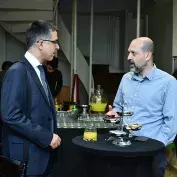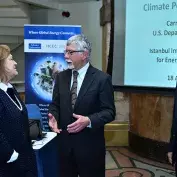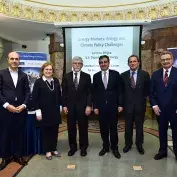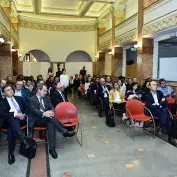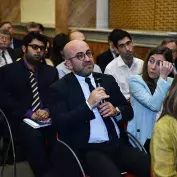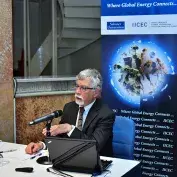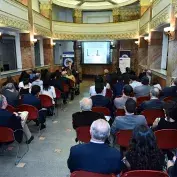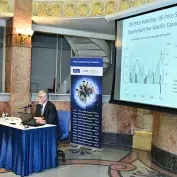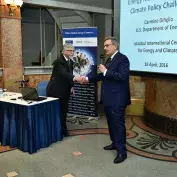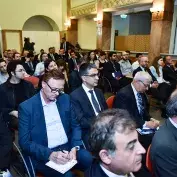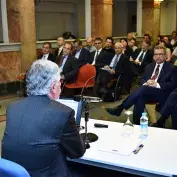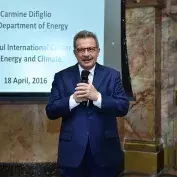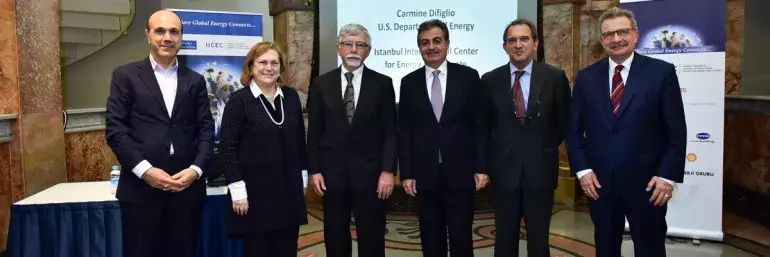
TALK BY DR. CARMINE DIFIGLIO (U.S. DoE), “ENERGY MARKETS: ENERGY AND CLIMATE POLICY CHALLENGES”
Sabancı University Istanbul International Center for Energy and Climate (IICEC) organized a talk on Energy Markets: Energy and Climate Policy Challenges by Dr. Carmine Difiglio, Deputy Director for Energy Security, Office of Energy Policy and Systems Analysis (EPSA) at the U.S. Department of Energy (DoE). Sabancı University Energy Technologies and Management (ETM) MSc students, energy industry executives, and high level representatives from energy related associations attended the event, and a cocktail followed the talk.
Oil prices have, over a brief span of time, fallen from $110 per barrel to $30 per barrel. Natural gas prices have similarly weakened with Asia LNG Prices falling from about $17 per billion cubic feet to $6 per cubic feet. Large investments in oil and natural gas production and transportation infrastructure have been shelved. The decades-long growth non-OPEC oil production has now stalled while OPEC exporters gain market share. Dr. Difiglio explored the reasons why oil and natural gas prices are subject to such sharp swings, how they affect or reflect the global economy and the longer term consequences of deferred energy investments. Significant energy investments are needed to support a growing global economy and meet the growing demand for energy services and reduce greenhouse gas emissions. However, the current stagnant world economy and commodity index do not favor sustainable energy and climate policies. Sustainable policies must meet multiple policy objectives since it is unrealistic to expect clean energy investments without growing prosperity and meeting the increased energy service demand that accompanies economic growth. These challenges are particularly acute in the emerging economies. They are a growing share of the world economy and world energy consumption. Likewise, the bulk of energy investments to avoid dangerous levels of greenhouse gas emissions must be made in these countries. There are significant challenges to advancing end-use energy efficiency, the deployment of renewable energy, the uptake of nuclear power and the structural reforms that promote efficient energy and national economies. A variety of technical and policy solutions are needed.
